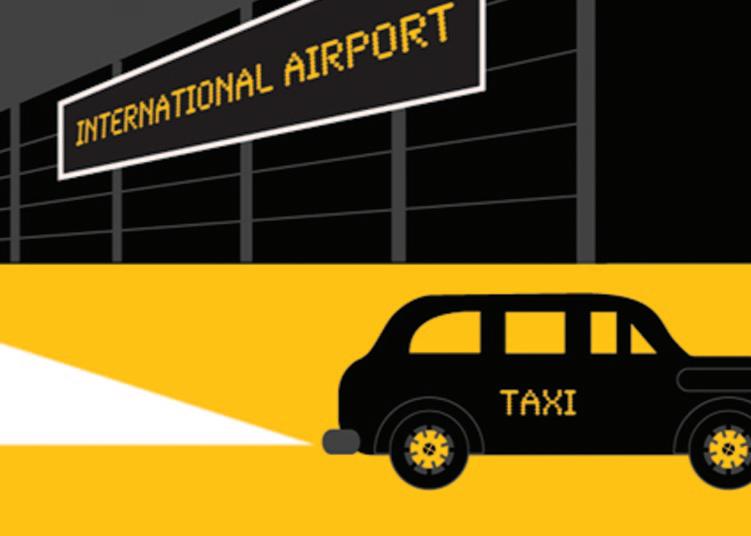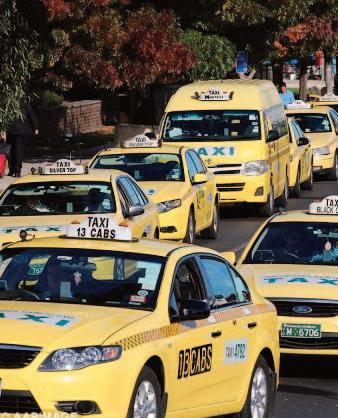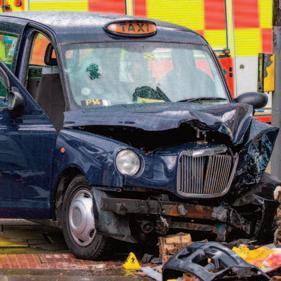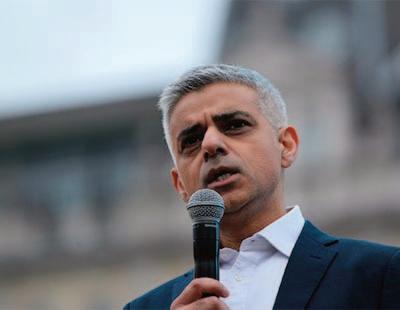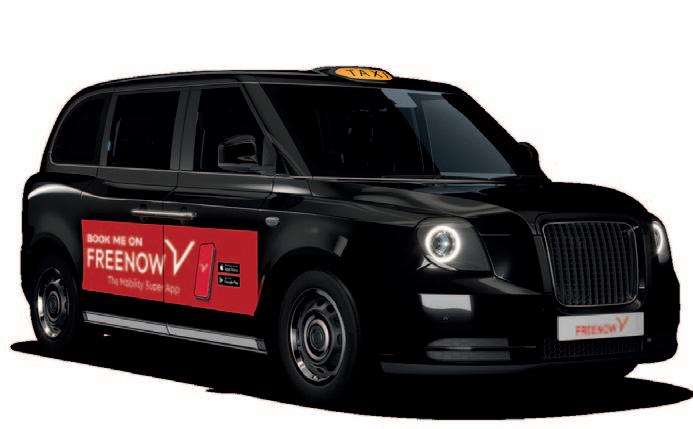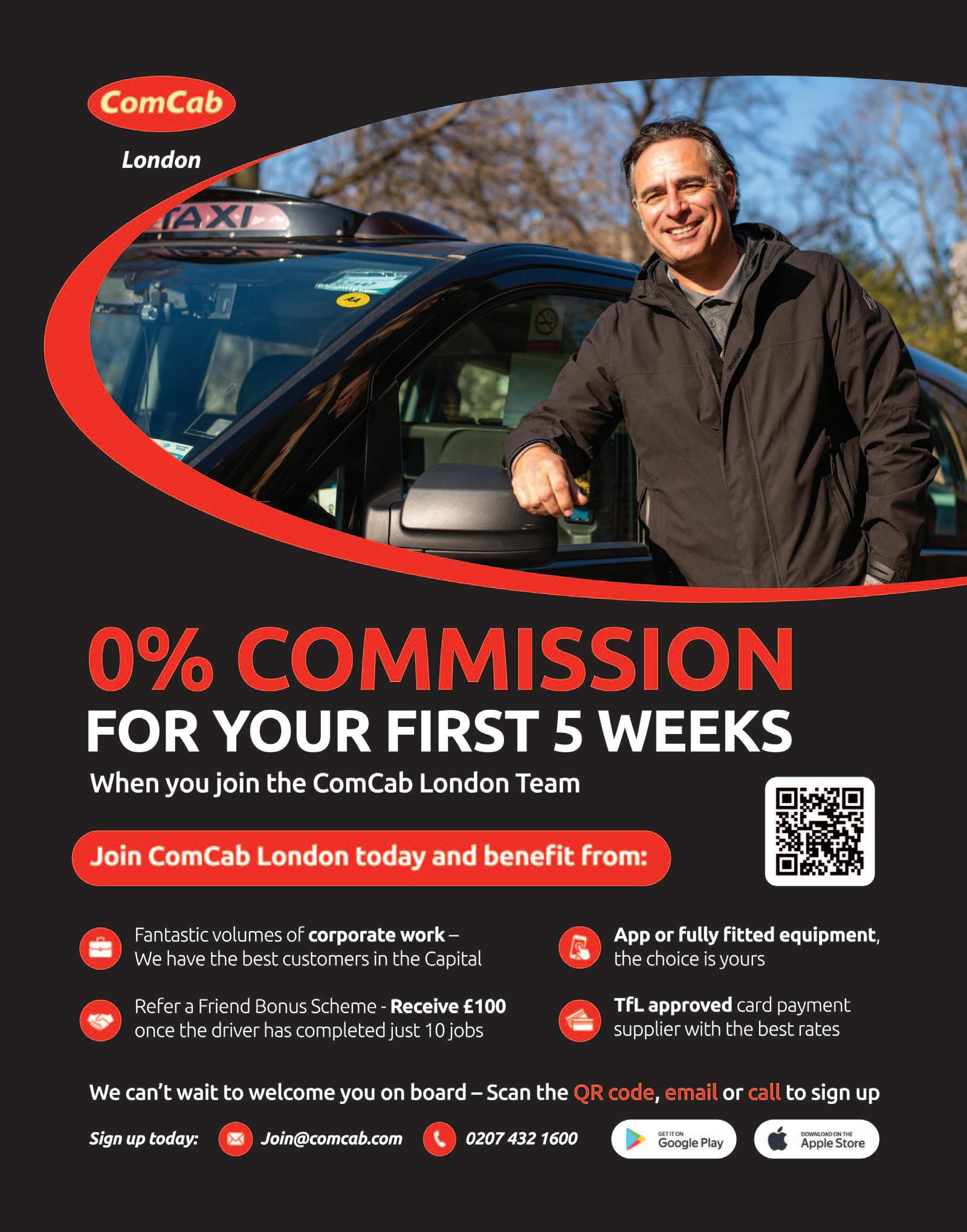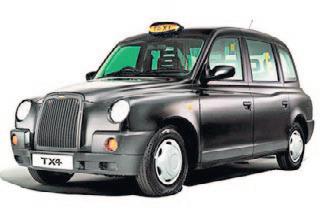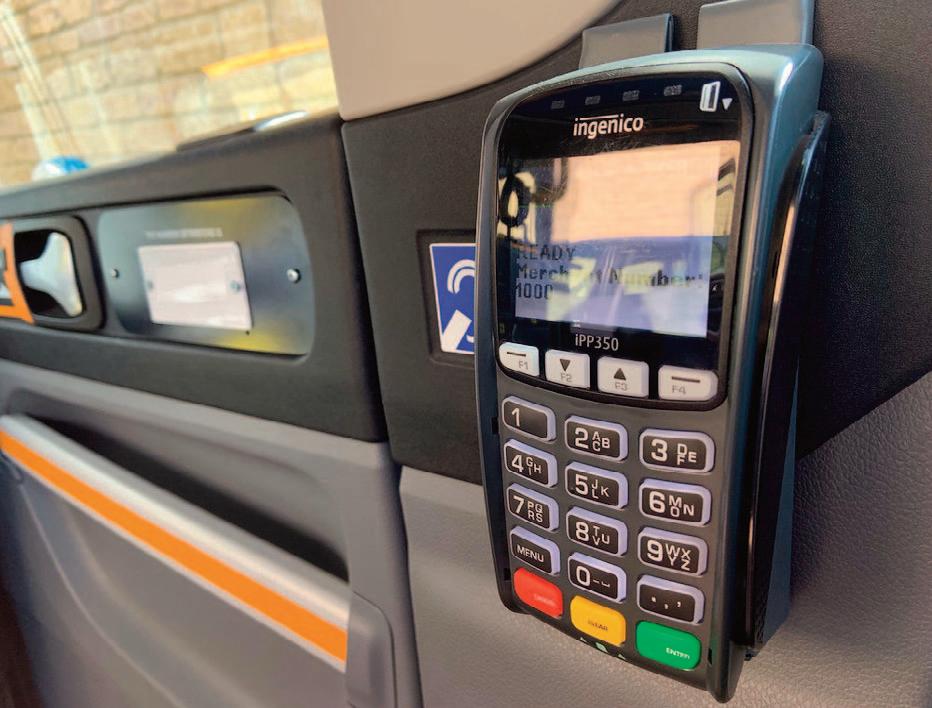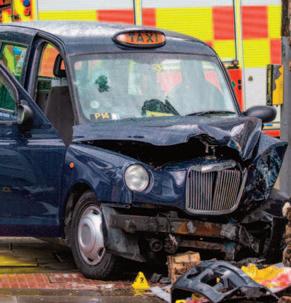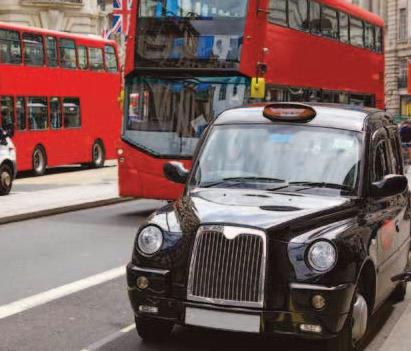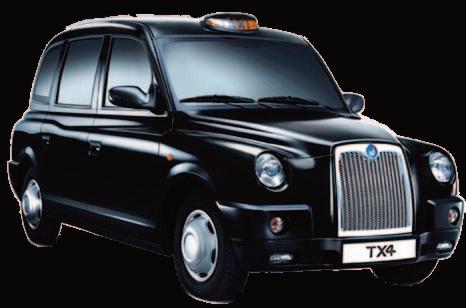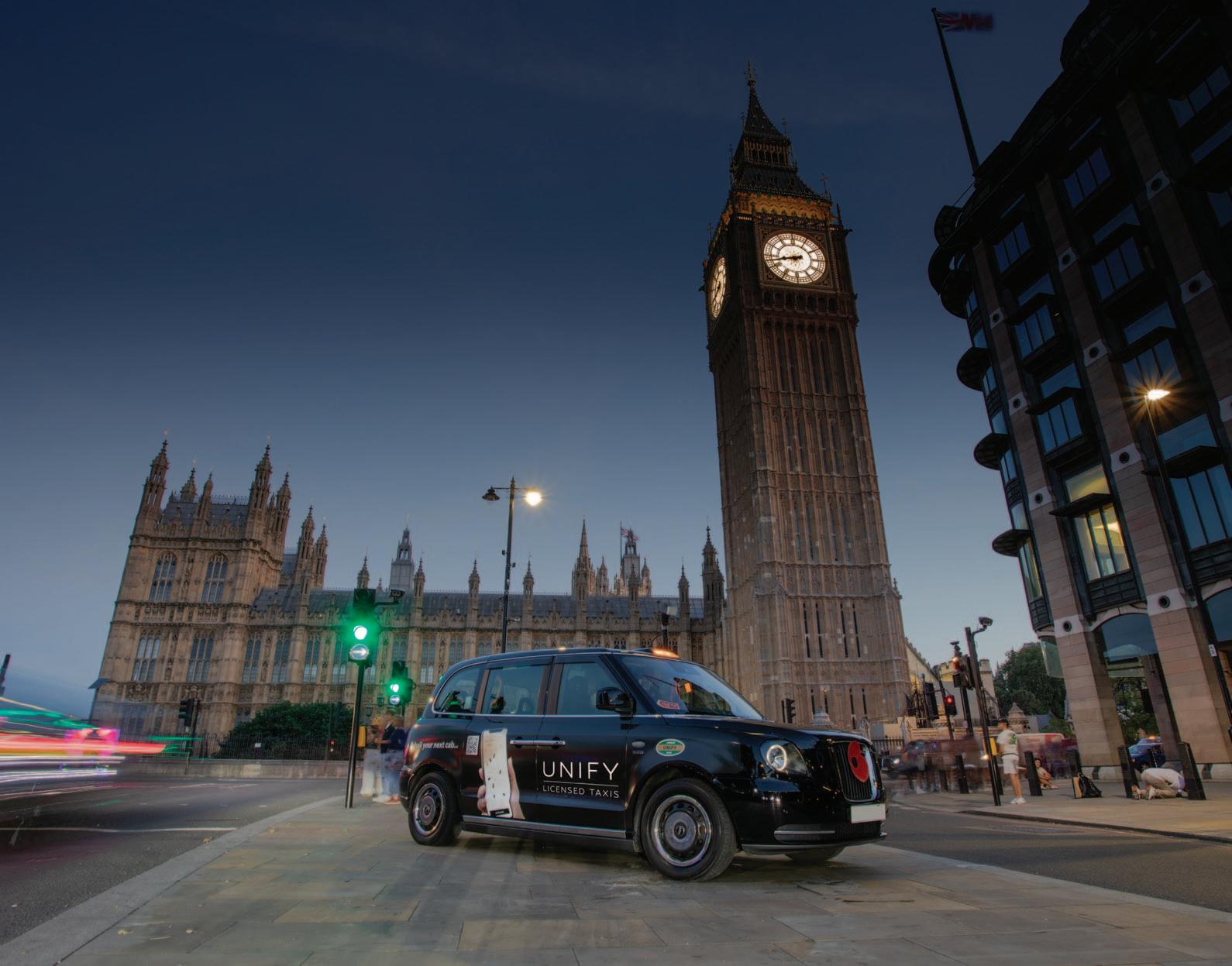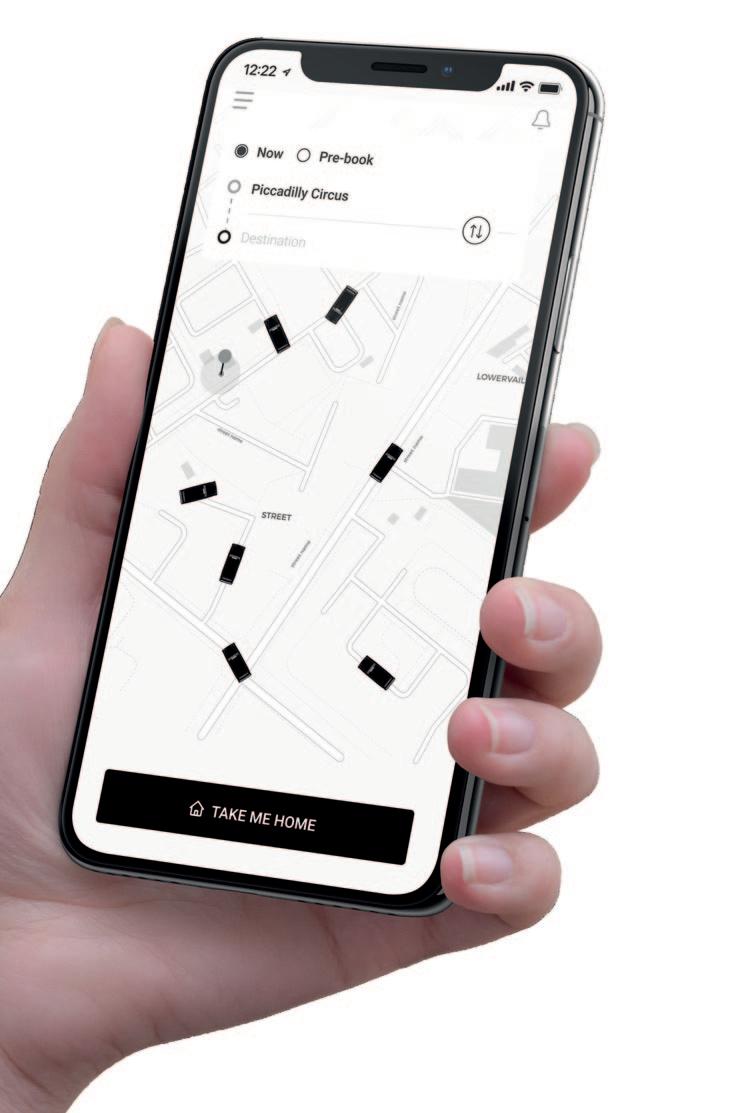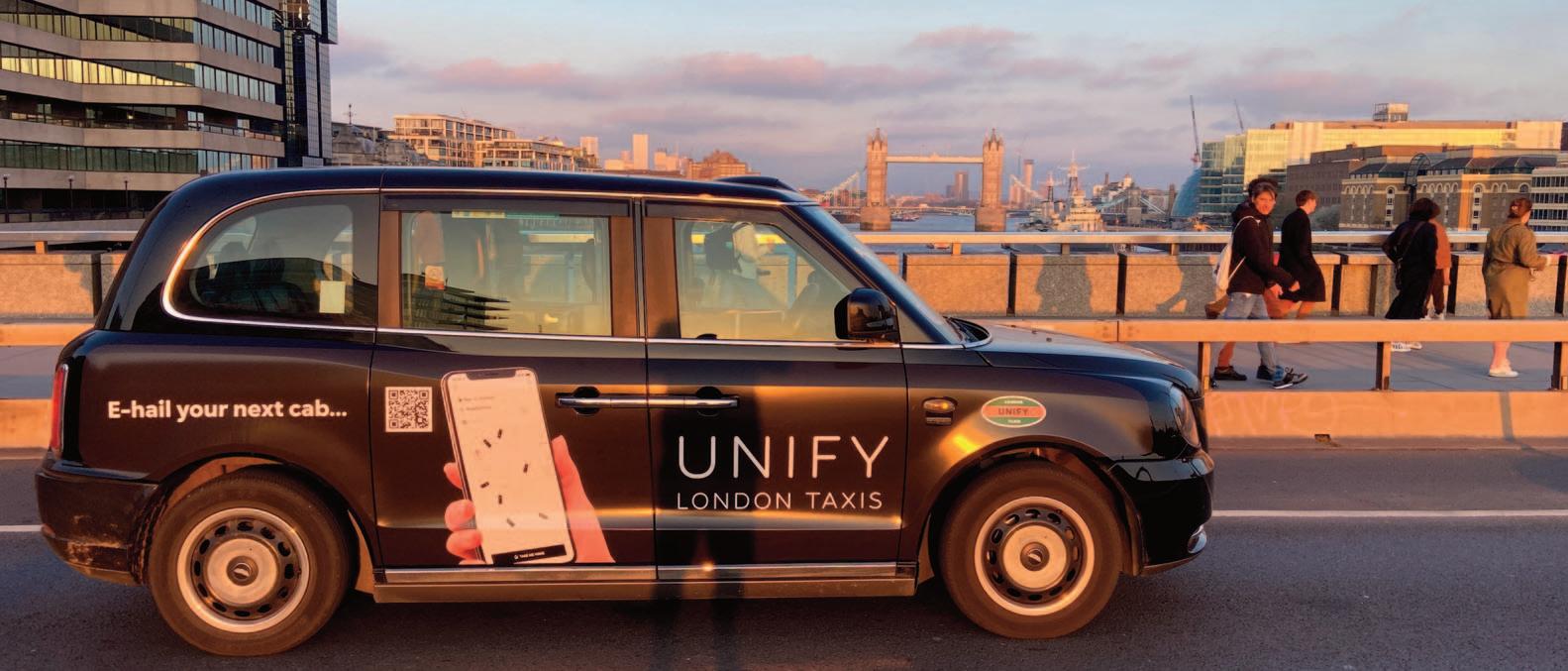Taxi & PH Review A Response February 2024
CONTEXT
Although the investigation focuses on taxi and Private Hire (PH) services, this response primarily represents the perspective of taxi drivers. It is evident that any concerns or dissatisfactions, whether direct or indirect, can be traced back to the regulator, Transport for London (TfL), and the Mayor.
This document serves as background information for the Taxi and Private Hire Review (PHV) scheduled for 2024. The review aims to assess the role of Taxis and PHVs in London's transportation network and the governing strategies for the industry.
As of 2024, there are 91,958 licensed PHVs in London, a significant increase from 49,900 in 2013. Additionally, the number of PH drivers has risen from 19,000 in 2005 to 106,554 in 2024. In contrast, London's taxi count has declined from 22,200 in 2013 to 14,740 in 2024, down from 24,700 in 2005.
TfL serves as the licensing authority for London's taxi and private hire sectors and published a Taxi and Private Hire Action Plan in September 2016, with minimal implementation. Despite the 2009 announcement by TfL to review signage in PHVs, as of 2024, official signage in PH vehicles remains scarce.
In March 2019, the London Assembly Transport Scrutiny Committee released yet another report on Taxi and PH services titled 'Raising the Bar,' urging for an elevation of Private Hire Standards as advocated by Assembly Members.
There were 9 recommendations:
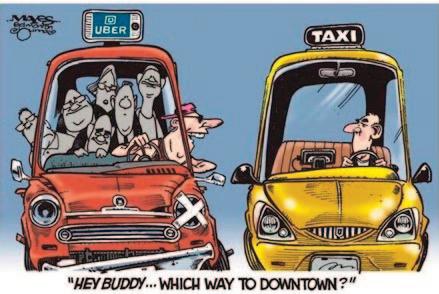
Recommendation 1
If a decision is taken to remove the congestion charge exemption for private hire, TfL should commit to conducting a full and timely evaluation of the effect of the removal of the congestion charge exemption on levels of congestion within the Charging Zone, the knockon effects for the areas immediately outside the zone, and the impact on operators, drivers and the wider public transport system.
Recommendation 2
We call on the Mayor and TfL to refresh the taxi action plan and set clear targets; for example, for the wider and accelerated provision of rapid charging infrastructure across London and the establishment of ranks at all Crossrail stations. TfL should also set out to this committee how it will address driver concerns about the lack of options when purchasing new vehicles, and provide an update on its efforts to accredit the Knowledge of London.
Recommendation 3
The Mayor now needs to clarify whether he will continue to press for the powers to cap licence numbers. If he does, TfL will need to demonstrate that they have collected the evidence necessary to conduct a thorough public interest test. The Mayor and TfL should consider ‘smart alternatives’ to a numerical
cap. This should include investigating how current and emerging technologies could be used to identify and mitigate the negative impacts of congestion and pollution at particular times or in particular locations.
Recommendation 4
TfL should work with stakeholders to determine whether there is unmet need for wheelchair accessible vehicles. If this is found, TfL should explore whether requiring larger operators to provide a minimum proportion of accessible vehicles within their fleets would resolve this issue.
Recommendation 5
TfL should consider how an accreditation scheme can contribute to raising standards and come forward with specific proposals for a Charter Mark scheme. TfL should also review the criteria for ‘fit and proper tests’ for private hire operators, in line with Government findings.
Recommendation 6
TfL should consider whether elements of the New York model could be applied in London, with a new type of high-volume operator licence based on the number of journeys an operator carries out, rather than simply the size of its fleet. In particular, TfL should consider how to review the current tiered licence fee
structure to reflect proportional impact of the operator on enforcement and administration, rather than size of fleet. TfL should also consider whether introducing requirements on high volume operators to submit an analysis of their impact on congestion, and anonymised trip data, should be replicated in London.
Recommendation 7
We urge TfL to work with stakeholders to develop proposals for a framework for regulation of on-demand bus services that addresses the convergence of private hire and bus services.
Recommendation 8
We urge the Mayor to bring forward a more comprehensive analysis of the potential benefits and risks of ride sharing for drivers and passengers, with a view to developing appropriate regulation, backed by calls for new legislation as necessary.
Recommendation 9
We reiterate our calls for TfL to improve its engagement with drivers, operators and passengers for both the taxi and private hire trades, recognising that each group has distinct concerns and needs that must be effectively addressed through regulation. This report has been largely disregarded by TFL.
Unaffordable Taxis
The Committee urged TfL to address driver concerns regarding the affordability of new vehicles. The price of a new Electric taxi now exceeds £70,000, and the £7,500 grant towards its purchase is soon expiring.
In a 2016 meeting, LTDA CEO Steve McNamara, believing the plug-in grant was going to be £19,500, anticipated that taxi drivers would purchase 9,000 taxis from LEVC within the first 3 years. He also expected fuel cost savings and comparable prices to the TX4 diesel model. After 6 years, around 8,000 taxis have been sold in total and only 700 taxis were sold last year, compared to the 2,000 - 2,500 sold annually by the previous manufacturer, (LTI) London Taxis International.
The Government's addition of 20% VAT to street chargers, coupled with increased electricity costs and the time required to find and charge at a point, has made electric taxis largely unviable. The vast majority of taxi drivers cannot charge at home. Many live in apartments or flats with no access to a charge point.
LEVC, who make the only taxi available, reportedly incurred a £140M loss last year.
4 Issue 293 March 2024
The Knowledge
TfL was also asked for an update on accrediting the Knowledge of London. Since the introduction of fees to sign on rather than utilising license fees, hardly anyone is pursuing the Knowledge. If TfL integrated Private Hire (PH) into the Knowledge of London learning process and reverted to the previous financing method, the public would benefit from better-trained drivers and safer services.
Wheelchair Accessible Vehicles
The Committee suggested that the Mayor/TfL should explore whether elements of the New York model could be applied in London. However, in London (unlike New York, where there is no requirement for all taxis to be Wheelchair Accessible), this additional requirement significantly increases the cost of Electric Taxis compared to Private Hire Cars, leading to higher taxi fares. It's unjust to maintain a policy mandating all London taxis to be Wheelchair Accessible while hardly any Private Hire Vehicles meet this requirement.
The Committee recommended that TfL collaborate with stakeholders to assess whether there is an unmet need for wheelchair accessible vehicles. If such a need is identified, TfL should consider mandating larger operators to allocate a minimum proportion of accessible vehicles within their fleets, applicable to both taxis and private hire vehicles.
The Department for Transport (DfT) guidelines on Wheelchair Accessible Vehicles (WCAV’s) advocate for a proportion of taxis to be designated WC accessible rather than imposing a blanket policy that burdens London taxis alone, resulting in increased taxi fares.
Steve Wright, a former TFL Board Member representing the Private Hire trade, has consistently opposed the requirement for Private Hire vehicles to be wheelchair accessible, citing potential fare hikes. Ironically, he voiced these concerns while serving on the TFL Board that enforced the mandate for all taxi drivers to have wheelchair accessible taxis, thereby contributing to increased taxi fares. This raises questions of bias and fairness.
Vehicle Policy
To obtain a license as a London taxi vehicle, the following conditions must be
met: Since January 1, 2018, all new black taxis seeking licensing for the first time must be zero emissions capable (ZEC), and vehicles already licensed by TfL must be less than 12 years old at the time of re-licensing.
For licensed PHVs, the following licensing requirements apply as of January 1, 2023: All PHVs (of any age) must be zero emission capable when licensed for the first time, and vehicles already licensed by TfL must be no older than 10 years at the time of relicensing.
Seminar (TOPS) was held in February 2020, just before the onset of the pandemic. Notably, TfL did not engage in discussions regarding the new driver policy with taxi trade representatives. There were over 80 amendments in the policy, which was released just before the Christmas break in 2021.
EV Charge Points
Assembly Members have questioned the lack of parking spaces and whether they contain proper toilet and handwashing facilities. The Taxi trade is in dire need of modern taxi facilities with adequate parking and charge points. In 2020, Lucy Hayward Speight said this would happen with private partners.
All London taxis currently licensed by TfL are wheelchair accessible, a requirement implemented since 2000. PHVs meeting specific criteria can be designated as wheelchair accessible vehicles (WAVs), although currently, only approximately 0.7 percent of PHVs in London are wheelchair accessible, predominantly comprising School Mini Buses.
By 2030, all taxis and PHVs must be zero emission capable (ZEC). As of January 2024, over half of London's black taxis are now zero-emission capable, with 8,176 vehicles meeting this standard. There has been a 10 percent increase in ZEC taxis in the last six months.
Driver Policies
TfL last updated its Taxi and Private Hire driver and vehicle policies in December 2021. However, the last Taxi Operation Performance
As of December 2022, London boasted 11,000 electric vehicle charging points, including 820 fast or ultra-rapid charging points. Despite earlier promises, only seven dedicated charge points are available at Heathrow Airport, often malfunctioning and among the most expensive in the city. TfL's Electric Vehicle Delivery Plan mandates the construction of 40,00060,000 charging points by 2030, with 10 percent designated as rapid charging points.
Since April 1, 2023, drivers must pass an English Language Requirement test, as TfL deems it "essential for public safety" that all private hire drivers communicate proficiently in English. However, in January 2024, Mayor Khan suspended the enforcement of the SERU regulations, including English tests, despite previously asserting in 2016 that anyone working in public service should speak English.
Partitions in PHV’s
We’re still waiting. There aren’t any private parties providing charging hubs for taxis: the Old Kent Road one which has ten bays, toilets and a café has now become PH.

In February 2020, Lucy Hayward Speight of TfL's disbanded EV Taskforce acknowledged to taxi trade representatives at a Taxi Operation Performance Seminar (TOPS) that Electric Taxis were prohibitively expensive, their range insufficient, and the number of charging points woefully inadequate. Despite promises to increase the number of EV Hubs by collaborating with private partners by 2025, no tangible progress has been observed. Remarkably, the EV Taskforce lacked representation from the taxi trade.
In addition, PH Drivers lobbied the Mayor saying they were fearful of being assaulted in their vehicles because they do not have partitions. During the pandemic, TFL said that PH Drivers could fit partitions in their vehicles. This was something that former Head of TPH, John Mason, had allowed from around 2010. However, very few in the PH trade bothered to fit partitions and it was often a common sight to see masked PH Drivers, ludicrously wrapped in makeshift partitions made of cling film, on the M4 driving to the Airport with their windows wide open during the Covid pandemic.
Taxi Shelters
There are only 13 Taxi Shelters (funded via a Trust, not TfL) remaining in London. Many are not fully open and some have taken to serving other people outside the taxi trade. The Pier Shelter on Chelsea Embankment has been closed for a decade; it was due to reopen as a Tourist attraction.
Apps
There are a range of applications available including some which offer London Taxis as well as those for PHV. FreeNow recently increased its commission to 18% and Gett charge 20%. Bolt has very few taxi drivers. These are all PH Operators.
The Telephone Booking Fee used to be displayed on the Meter as an Extra and was paid to drivers. The Operators of Apps have lobbied TFL to remove that requirement and now charge the customers direct and keep the £2. They have recently asked TFL to increase the amount. TFL are currently considering the request.
TaxiApp and Unify are two newer entrants and are Taxi only.
In 2024, Uber is opening its service up to black cabs in London - again. Taxi drivers are refusing to sign up with people who tried to kill our trade and referred to us as ‘A***holes’. A class action against Uber by taxi drivers should be starting later in 2024.
Applications to the Knowledge
There are fewer people applying to become taxi drivers as well as an aging workforce. To become a taxi driver, drivers must undertake the Knowledge [of London test], which is a series of tests required to be completed before a taxi licence can be obtained.
TFL have failed to publish their financial reports which would show more accurate information based on the income from Knowledge fees.
In 2018 and prior years, an average of 2,000 candidates pursued the Knowledge test annually, but in 2023, the number dropped to around 700. TfL informed taxi trade Continues overleaf
Issue 293 March 2024 5
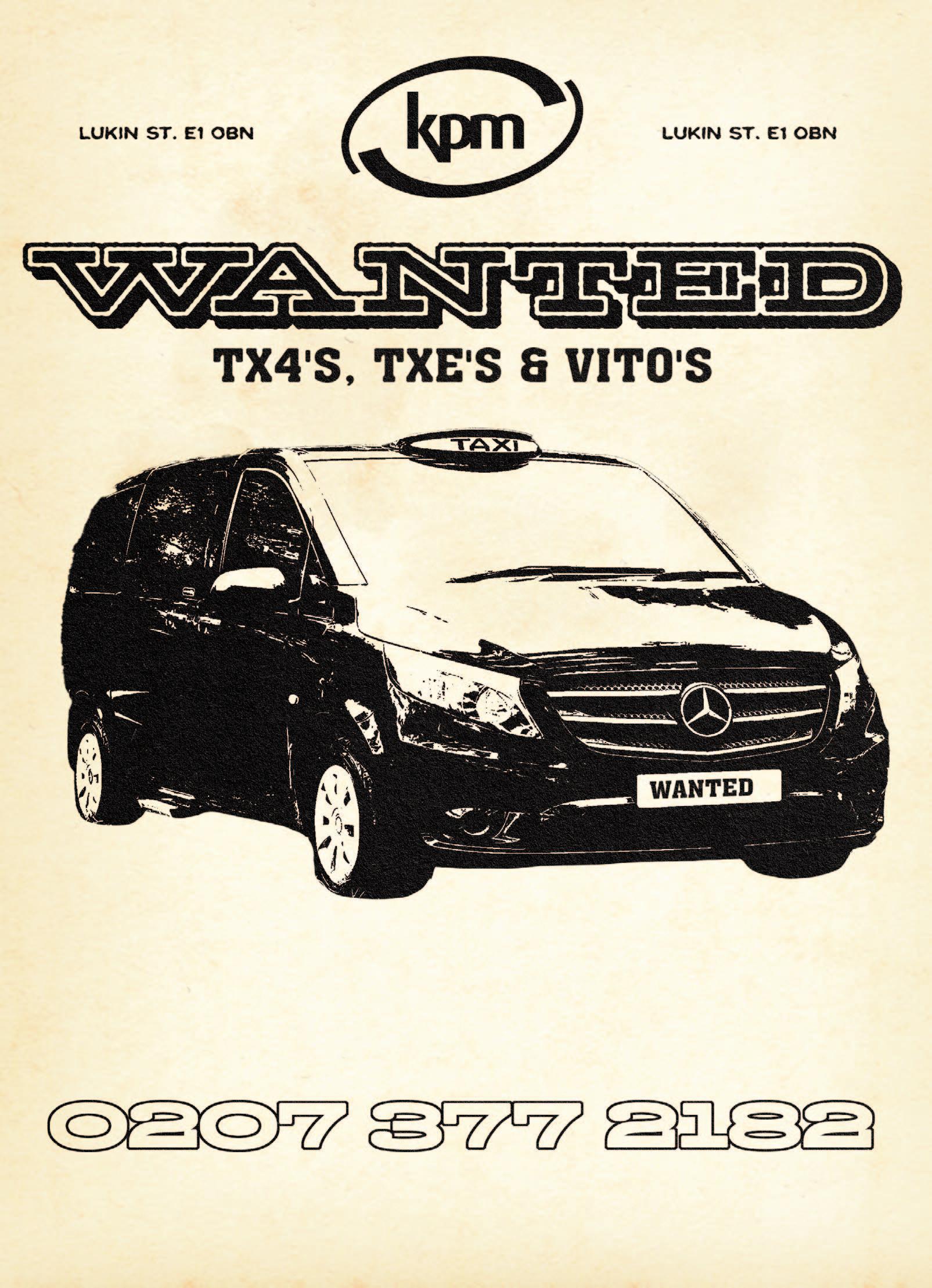
representatives that out of 1,500 applications, failing to specify whether they intended to study for the All London or Suburban Knowledge, were contacted and asked to confirm their choice.1,499 applicants expressed their desire to become Uber ‘taxi’ drivers.
A Brief History
A glance at the recent history of these two industries reveals minimal issues with the supply or pricing of London taxi services before the 1950s.
However, the post-WWII quarter-century witnessed significant economic growth alongside the establishment of the welfare state, leading to greater disposable income among the working class.
Consequently, demand for taxi services surged, overwhelming the licensing system's capacity to keep pace, notably due to the entry barrier known as the "Knowledge of London (KOL)." This topographical requirement for taxi drivers created excess demand, prompting the emergence of the minicab industry to exploit this gap.
Initially, a clear distinction existed between taxis and minicabs, with the latter perceived as cheaper, inferior, and unregulated. However, by the 1990s, lax enforcement led many minicab drivers to tout for business, resulting in confrontations outside latenight venues. The regulation of the PH service during 2001- 03 aimed to address safety concerns, particularly following a rise in serious sexual assaults by minicab drivers.
However, the distinction between taxis and PH became blurred, exacerbated by insufficient enforcement and regulatory leniency, enabling PH to encroach upon services traditionally reserved for taxis.
The confusion surrounding service differences is compounded by TfL's failure to provide adequate public information and enforce regulations effectively. This has led to the widespread perception of taxis as "black cabs" and PH as "minicabs," despite regulatory stipulations against using the terms "taxi" or "cab" for PH. Additionally, the use of black vehicles by PH operators like Addison Lee further blurs these distinctions, complicating passengers' understanding of service disparities.
Addison Lee recently acquired Com Cab (which was originally owned by the LTDA and called ‘London Wide’ and Computer Cab, who bought Dial a Cab for £1). AL have just
announced their intention to open a ‘Knowledge’ school. Gett and FreeNow have also announced similar schemes, but at the recent Transport Meeting, FreeNow’s General Manager, Mariusz Zabrocki, suggested that the area studied be reduced by half.
Fares & Payments
The disparity in perceptions of taxi fares may stem from TfL's establishment of a two-tier regulatory regime, resulting in significantly different cost structures for taxis and PH. Taxis face stringent regulation, with safety costs internalised into fares, whereas PH costs are largely externalised due to lighter regulation.
The rigorous Knowledge testing process for taxi drivers entails substantial time and monetary investments, creating a barrier to entry. In contrast, PH drivers undergo minimal testing, leading to potential safety concerns as they lack topographical knowledge and advanced driving qualifications required of taxi drivers.
Exempting PH drivers from rigorous testing reduces entry barriers but may result in increased safety risks and associated costs externalised to society. While taxi passengers bear the full costs of service, the general society effectively subsidises PH costs and fares, highlighting regulatory disparities and their implications for safety and cost distribution.
Recruitment and retention issues persist in the taxi trade, primarily due to TfL policy decisions. Whilst the ‘Knowledge of London’ (KoL) numbers are slowly improving, driver retention remains a major concern. The age limit policy and cost factors contribute to this, along with uncertainty about how TfL applies the introduction of DfT National Standards through the updated TPH Driver Policy. This reflects a managed decline approach by TfL, which only reacts to crises instead of proactively addressing issues.
The trade acknowledges the need for new drivers in the long term but requires confidence in future prospects. The ‘Future Proof’ report of 2014 highlighted stagnation in taxi driver numbers, attributed to factors such as perceptions of inadequate income and high costs associated with training. It's crucial for TfL to ensure sufficient incentives for drivers to undertake the Knowledge training and recognise their investment in completing it.
There's also debate around entry requirements for private hire drivers, with concerns about whether they are too low. The distinction between prebooking and immediate hiring is blurred by smartphone apps, allowing companies to exploit regulatory loopholes.
The ‘Knowledge’ exam remains a merit based system, open to all individuals regardless of background. However, there's concern that the return on investment for completing the Knowledge is diminishing, as the distinction between earned and bought badges becomes less clear.
TfL should address delays in the licensing process to maintain a steady supply of licensed taxi drivers. The review process must ensure
prior involvement in consultations and feedback sessions, TfL's communication approach lacked transparency and promptness, violating the DfT Taxi and Private Hire Vehicle Licensing Best Practice Guidance. Existing licensees were not individually notified, and TfL's reliance on indirect means like weekly updates and social media engagement was insufficient for such crucial policy changes.
The Appeal Process
Another consequence of TfL's decision-making is evident in the Reconsideration Hearing or the appeal process. Since 2021, TfL's management of this process in-house, rather than by independent lay members, has raised concerns about fairness and impartiality.
The Vehicle
The taxi service incurs significantly higher vehicle costs compared to the PH service. While PHVs can utilise virtually any production model car or Multi Purpose Vehicle (MPV), taxis must meet additional conditions, such as wheelchair accessibility, necessitating Purpose-Built Vehicles (PBVs) supplied by a monopoly market with only one supplier.
These additional vehicle costs, mandated solely for taxis by the regulator, result in significantly higher capital and operational expenses compared to PHVs. For instance, while the current cost of a plug-in Hybrid Toyota Prius, preferred by PH drivers, is approximately £37,000, the TXe taxi exceeds £70,000, nearly double the cost.
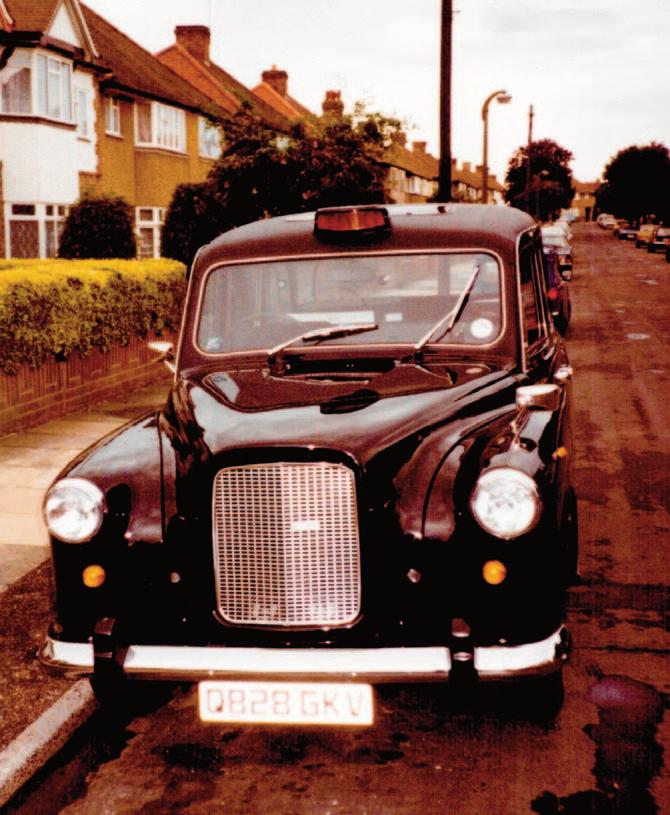
fairness and not compromise the trade's heritage and standards. Transparency and effective communication from TfL are essential to navigating current workforce challenges. Improvements are needed to reduce delays in issuing licenses to qualified candidates, ensuring they can promptly enter the workforce.
Implementation of Driver Policy
The failure of TfL to effectively communicate updates to the TPH Driver Policy, aligned with the DfT national standards introduced in December 2021, illustrates a disregard for existing licensees. Despite
This lack of independence impacts the assessment of drivers' fit and proper test, potentially leading to unnecessary recourse to Magistrates Court. TfL must review and amend this approach promptly to ensure fairness in the appeal process.
Driving Tests
Additionally, there's a pressing need to reinstate the Taxi Driver Driving Assessment, as outlined in the Taxi and Private Hire Action Plan. This requirement, previously removed in 2016, should be extended to PHV drivers to uphold high standards and ensure public safety.
Legislation and regulation ensure safety aspects are integrated into PBV taxis, costs that would be externalised or disregarded in a more marketdriven setting. While the taxi service is subject to heavier regulation and emphasises passenger safety, the PH market, guided largely by price and subject to lighter regulation, may compromise on safety measures.
In 1985, prior to having to be WCAV’s, taxis did not cost anymore than an average four door saloon car, such as a Ford Cortina. In 2024, they cost more than double. Moreover, the regulatory disparity between taxis and PH is compounded by inadequate public education regarding these differences, contributing to misconceptions about fare discrepancies. While some passengers perceive taxi fares as excessive due to the misconception of taxi monopolisation, the reality is that London's taxi service operates in a near-perfectly competitive market, albeit with regulated pricing.
Taxi driving offers a nonexploitative labour model, with each driver operating as an independent business owner, minimising market distortion. In contrast, PH drivers, often recent immigrants, face exploitative working conditions, dictated by operators who control pricing and work schedules.
The GMB (the main trade union for PH drivers) consistently highlights poor working conditions and low pay, exacerbated by drivers' vulnerability. Many operators
Continues overleaf
Issue 293 March 2024 7
externalise costs onto the welfare state through in-work benefits, further subsidising PH fares and profits.
This unequal arrangement between operators and drivers is reflected in the stability of taxi driver employment compared to the turnover among PH drivers. While the intellectual capital invested in obtaining a taxi license provides job security, the lack of value in a PH license contributes to high driver turnover and low pay.
Despite these challenges, the PH industry continues to attract new entrants due to minimal entry barriers, resulting in a 25% increase in PH drivers over the past nine years. This raises questions about perceptions of taxi fares being excessive compared to PH fares, suggesting market mechanisms in the taxi service operate efficiently, while the PH market faces disequilibrium due to operator control.
Taxi concerns over enforcement
Regulating the taxi and PH services effectively under current arrangements is challenging. Since PH licensing in 2001- 03, both services have been overseen by the same regulator, despite significant differences in regulatory needs.
While taxi drivers have historically maintained selfenforcement due to the value of their licenses, many PH drivers are unaware of the regulations they operate under, leading to enforcement challenges.
The regulator's difficulties in effective regulation, compounded by the erosion of enforcement capabilities, have prompted calls for separate regulators for each service.
Despite being funded by license fees, resources for enforcement and compliance have been diverted, resulting in unanswered questions from Assembly Members regarding issues like eg. taxi touting at Heathrow.
Date: 23 February 2023
Question: Touting at Heathrow Airport
Regarding question 2018/5148, what progress has been made on the review on how to tackle unlicensed Private Hire Drivers touting at Heathrow Airport?
Answer
Date: Thursday 6 April 2023
Transport for London (TfL) continues to focus on the issue of illegal activity at Heathrow Airport as a priority. TfL’s Operations Officers have been
continually deployed at Heathrow, working on Operation Departure. This is a plain clothes/non-uniformed operation with the Police focused on detecting illegal touts as they exit Departures within the airport terminals. Officers have undertaken over 40 operations in the last 12 months, which has resulted in 23 cases of illegal activity being detected and action taken. In addition to this, officers also undertake highly visible operations using TfL’s Community Safety Accreditation Scheme (CSAS) powers to stop and inspect licensed Taxi and Private Hire drivers and vehicles at Heathrow. In the last four months, there have been 59 deployments at Heathrow, resulting in 855 Private Hire drivers and 876 Private Hire Vehicle checks, with an average 80 per cent compliance rate. It has also resulted in 128 taxi and 115 taxi driver checks, with an average 85 per cent compliance rate.
While the review referenced in Mayor’s Question 2018/5148 was delayed due to the pandemic, discussions with the Heathrow Airport Authority regarding the feasibility of granting authorisation to enforce Heathrow bye laws to TfL Operations Officers have resumed.
Question: Touting at Heathrow Airport Heathrow Airport representatives in conversation with representatives of LCDC said they are happy to start a discussion with the taxi trade about funding a dedicated Tout squad. Will you support such an initiative?
Answer
Date: Tuesday 23 May 2023
Taxi and private hire compliance at Heathrow is a high priority for Transport for London (TfL) and receives regular attention from TfL’s enforcement officers and the MPS Cab Enforcement Unit. TfL’s enforcement officers work alongside the police to deter illegal activities at Heathrow and ensure that licensed drivers and vehicles comply with the law. Unlicensed touts are predominantly dealt with by the Police under the Criminal Justice and Public Order Act 1994
TfL is in discussion with Heathrow Airport to designate TfL enforcement officers with authority under the Heathrow Byelaws to further improve the safety of the public at Heathrow, including the power to request taxi and private hire drivers and/or vehicles
suspected of an illegal activity to leave the airport and to prevent their re-entry.
TfL is not aware of the discussions between Heathrow Airport and the taxi trade about a proposal to introduce and fund a dedicated team. I would encourage Airport representatives and the trade to discuss the proposal with TfL and the MPS to ensure that collective efforts between the Airport, TfL, and the police are effective in deterring, detecting and disrupting illegal and noncompliant activity that puts passengers at risk and undermines the law-abiding taxi and private hire trades.
Date: 18 May 2023
Question: Touting at Heathrow Airport
The answer to question 2023/0558 related to checks of illegal touting by licensed Taxi and Private Hire drivers and vehicles at Heathrow, but the question related to unlicensed Private Hire Drivers. Please confirm what actions have been taken related to unlicensed Private Hire Drivers.
Answer
Date: Tuesday 18 July 2023
Transport for London (TfL) continues to focus on the issue of illegal activity at Heathrow.
TfL’s Operations Officers in the Roads and Vehicles function are continually deployed at Heathrow working on Operation Departure, a plain clothes/non-uniformed operation in collaboration with the Police focused on detecting illegal touts as they exit departures within the airport terminals. The usual prosecution for a touting offence is also coupled with an offence of no insurance.
In addition to deployments at the terminals, TfL also conducts regular proactive high visibility patrols around the Heathrow roadways, stopping private hire vehicles for compliance checks as they travel to or from the terminals. These compliance checks include requiring evidence of a booking if passengers are on board. Please refer to my response to Mayor’s Question 2023/1504 for additional measures TfL is taking to tackle Private Hire driver and vehicle offences at Heathrow.
Date: 22 June 2023
Question: Touting at Heathrow Airport
Would you consider ring fence funding for a dedicated Police Tout Squad at Heathrow from Taxi and PH Licence Fees to clear up this problem which is damaging to London’s reputation with visitors and is seen by many as out of
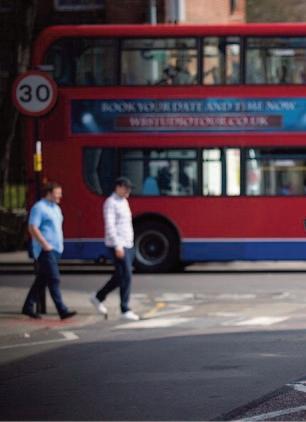
control?
Answer
Date: Tuesday 16 January 2024
Heathrow remains a high priority for Transport for London (TfL) and the Metropolitan Police Service, with continued focus on reducing the risk of illegal activity there. TfL’s Operations Officers are continually deployed at Heathrow working on Operation Departure, a plain clothes operation in collaboration with the Police focused on detecting illegal touts as they exit departures within the airport terminals. The usual prosecution for a touting offence is also coupled with an offence of no insurance.
In addition to deployments at the terminals, there are regular proactive high-visibility patrols around the Heathrow roadways stopping private hire vehicles for compliance checks as they travel to or from the terminals. These compliance checks include requiring evidence of a booking if passengers are on board. TfL is in discussion with Heathrow Airport to designate TfL enforcement officers with authority under the Heathrow Bye laws to further improve the safety of the public at Heathrow, including the power
to request taxi and private hire drivers and/or vehicles suspected of an illegal activity to leave the airport and to prevent their re-entry.
Date: 16 November 2023
Question: Taxi and PH Compliance Officers
How many dedicated Taxi and PH Compliance Officers operate at Heathrow?
Answer
Date: Tuesday 21 November 2023
Enforcement activity is intelligence-led, and Transport for London’s (TfL’s) Operations Officers have a regular presence at Heathrow Airport, the terminal forecourt and Feeder Park as well as the local roads around the airport. TfL works collaboratively with the Police and Heathrow Airport officials to deter and detect TPH-related issues in and around the airport. In the last 12 months, TfL has completed 226 deployments at Heathrow.
Date: 21 December 2023
Question: Taxi and PH Compliance Officers
Following your answer to question 2023/4204, how many of the officers mentioned are dedicated only to Taxi and Private Hire (TPH) compliance at Heathrow?
8 Issue 293 March 2024
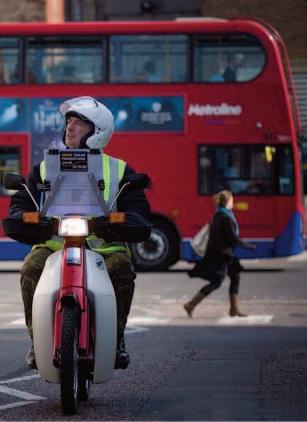
Answer
Date: Thursday 28
December 2023
Enforcement activity is intelligence-led, and Transport for London’s (TfL’s) Operations Officers have a regular presence at Heathrow Airport, the terminal forecourt and Feeder Park, as well as on the local roads around the airport.
TfL works collaboratively with the Police and Heathrow Airport officials to deter and detect TPH-related issues in and around the airport.
In the last 12 months, TfL has completed 226 deployments at Heathrow.
Heathrow remains a high priority for TfL and it continues to focus on the issue of illegal activity there. TfL’s Operations Officers in the Roads and Vehicles function are continually deployed at Heathrow working on Operation Departure, a plain clothes/non-uniformed operation in collaboration with the Police focused on detecting illegal touts as they exit departures within the airport terminals. The usual prosecution for a touting offence is also coupled with an offence of no insurance.
In addition to deployments at the terminals, TfL also conducts regular proactive high visibility patrols around the
Officers are drafting a response.
Literally years of persistently posing similar questions in various forms have failed to yield a dedicated Tout Squad at one of the busiest airports globally, despite calls to allocate funds from Taxi and PH license fees for this purpose.
Operation GADI initially showed promise, but within days, Touts had returned to all terminals. Law enforcement authorities suggest this resurgence merely scratches the surface of criminal activity orchestrated by Organised Crime Gangs. Surprisingly, TFL's efforts remain insufficient, with no daily deployments at one of the world's busiest airports. Funds sourced from Taxi and PH license fees could feasibly support a dedicated Tout Squad; however, officers find themselves reassigned to duties such as checking bus and train tickets.
PASSENGER NEEDS AND EXPECTATIONS
Disabled Access to Taxi and PH Services
Heathrow roadways stopping private hire vehicles for compliance check as they travel to or from the terminals. These compliance checks include requiring evidence of a booking if passengers are on board. Please refer to 2023/1504 for additional measures TfL is taking to tackle Private Hire driver and vehicle offences at Heathrow.
Date: Tuesday 23 January
2024
Question: Touting at Heathrow Airport
I have been made aware of Operation GADI which targeted taxi touts operating at Heathrow Airport. I understand it used Arabic speaking decoy officers posing as passengers arriving from abroad and that the operation over 2 days broke up an organised crime gang and resulted in 6 arrests for taxi touting, 15 traffic offence reports ranging from no insurance, speeding tickets, ANPR evasion and other offences. Do you consider this operation a success and, if so, will you provide adequate funding (365 days/year) for a dedicated squad of police officers at Heathrow Airport to eradicate the touting problem? Answer
Date: Tuesday 23 January 2024
dissatisfaction may stem from a lack of information regarding the higher cost burden imposed on taxis by regulators compared to PH services. Other factors contributing to declining satisfaction include longer wait times for taxis due to regulations, safety concerns when waiting on the street for a taxi, and reduced availability of taxis, particularly late at night. Encouraging taxi drivers to operate in areas with low supply presents a complex challenge, as drivers tend to gravitate towards busy areas with high demand, leaving other regions underserved. While there may not be a supply shortage in certain areas, reduced taxi availability can be misinterpreted as a supply failure, particularly where demand is low. Ultimately, there is a correlation between demand levels and the time it takes to hire a taxi, with higher demand areas experiencing shorter wait times.
service to operate largely unregulated for decades. The current two-tier regulatory system, with heavy regulation for taxis and lighter regulation for PH, exacerbates inequalities in cost burdens between the two services.
The discrepancy in regulatory requirements, such as the rigorous topographical testing for taxi drivers compared to the lack thereof for PH drivers, highlights the need for a reassessment of regulatory standards. Additionally, vehicle requirements for taxis, such as wheelchair accessibility and turning circle specifications, significantly inflate costs without necessarily enhancing passenger safety.
The GLA's "Future Proof" report revealed that 14% of taxi passengers and 19% of PH customers identify as disabled. Despite this, regulations mandate taxis to be fully accessible to all passengers, including features like wheelchair accessibility (WAV) and aids for the visually and hearing impaired. However, while a higher percentage of PH passengers have disabilities, regulations impose no such requirements on PHVs, leading to discrimination. At a minimum, larger PH operators should be obligated to provide a proportion of WAV vehicles proportional to the disabled passengers using PHVs. Furthermore, many contracts for transporting disabled individuals, such as hospital and social service contracts, are awarded to PH services. While there is an argument for PH self-regulation in this area, it has proven insufficient in providing an adequate number of WAV vehicles. Unlike taxis, which have a better track record of self-regulation, PH operators determine whether to provide WAV vehicles voluntarily.
PASSENGER SATISFACTION
There is a pressing need to investigate the reasons behind declining passenger satisfaction with the taxi service. Despite consistently being rated the world's best by visitors to the UK, passenger
The advent of ride-hailing apps presents both opportunities and threats to both taxi and private hire (PH) services. While these apps offer convenience for both drivers and passengers, they also challenge the established regulatory framework, potentially disrupting the status quo.
For PH operators, ride-hailing apps pose a similar threat as the PH service once posed to taxis—competition with lighter regulation. While app operators and drivers technically face the same regulations as traditional PH operators, the enforcement of rules regarding booking and driver verification becomes significantly more challenging. The rise of electronic hailing blurs the lines between traditional pre-booked fares and instant street hails, infringing upon the exclusive right of taxis to accept instant street bookings. This shift in fare calculation aligns with the definition of a "taximeter" under the Private Hire Act (London) 1998, raising concerns about the regulatory oversight of these apps. The use of electronic hailing effectively removes the barrier preventing PH services from accepting instant, hailed bookings, transforming certain apps into de facto taxi services, contrary to the intended purpose of the law and regulations. Responsibility for ensuring the standards and safety of both taxi and PH services ultimately lies with the regulator, whether it be the Mayor or TFL. However, shortcomings in regulation and enforcement can be traced back to previous regulators who allowed the PH
While light regulation may have initially facilitated the transition of the PH service from unlicensed to licensed, it was intended to be a temporary solution. However, the failure to gradually align regulatory standards between taxi and PH services has perpetuated disparities and hindered the evolution of the regulatory framework to meet changing technological and market dynamics.
This was acknowledged by Jeroen Weimar in his paper to the TfL Surface Transport Panel in 2009, which was scrapped by TFL under John Mason and Helen Chapman.
TRANSPORT FOR LONDON SURFACE TRANSPORT PANEL
AGENDA ITEM 7
SUBJECT: PRIVATE HIRE STRATEGY PROPOSALS
2009 - 2014
DATE: 19 MAY 2009
1 PURPOSE
1.1 This paper sets out some broad options for TfL’s role in the development of the private hire vehicle (PHV) industry in London. The paper aims to stimulate a debate on the appropriate positioning for TfL as both a licensing authority and as a broader transport authority for London and will feed into the development of the Mayor’s Transport Strategy.
2 BACKGROUND
2.1 Private hire is an important part of London’s wider transport system – providing an estimated 300,000 journeys a day. PHV usage is widely spread across London and serves a highly diverse customer base – including a significant level of provision for those requiring assistance to travel.
2.2 The Private Hire Vehicles (London) Act 1998 (‘the PHV Act’) is the basis for licensing London’s PHV trade. Since 2001, TfL’s Public Carriage
Continues overleaf
Issue 293 March 2024 9

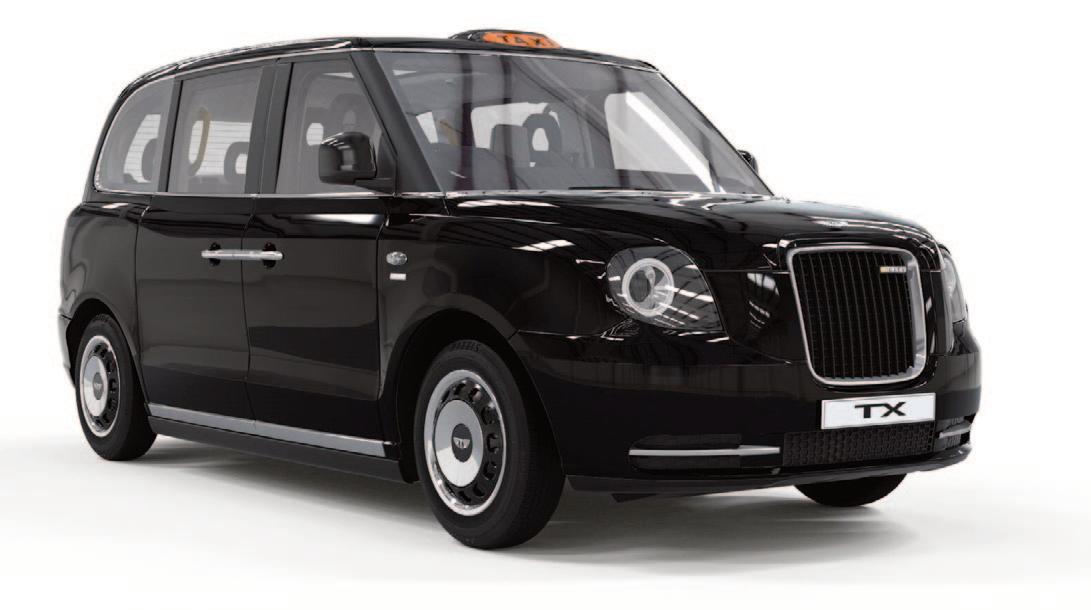
The future is Green
The future is Colts

Don’t be a diesel dinosaur
TXE taxis to rent
We are still renting a limited amount of diesel taxis

Office (PCO) has implemented a licensing regime which now covers 2,500 private hire operators, 56,000 drivers and 49,000 vehicles.
2.3 The scope of PHV licensing is defined by the original legislation although TfL can introduce additional requirements. The key principles of the current PHV licensing regime include:
(a) All journeys must be prebooked through a licensed operator;
(b) Private hire fares are not regulated;
(c) The costs of licensing are covered by licence fees;
(d) All drivers have to complete enhanced Criminal Records Bureau(CRB) checks and a medical check;
(e) All vehicles are required to have two MoTs a year plus a licensing inspection; and
(f) Licensed PHV in London includes minicabs, executive and chauffeur services.
3 ISSUES
Distinction between private hire and licensed taxi trade
3.1 The taxi and private hire trades operate in overlapping markets with significant competition, especially in the corporate account and late night travel sectors. The primary structural difference is that only licensed London taxis can ply for hire. All PHV journeys must be booked in advance via an operator centre.
3.2 The taxi trade is highly regulated extending to fare tariffs, detailed vehicle specifications and a requirement for all licensed Taxi drivers to complete the Knowledge – in itself requiring some three years of dedicated study. As such, taxi drivers have to commit significant time and capital outlay to enter the trade.
3.3 Entry into the PHV industry is comparatively easy. PHV drivers are required to meet similar medical and character checks, pass a brief routefinding test and can become licensed within three months. PHV drivers can work for any number of operators or establish a new operating business (requiring additional measures). The PHV trade can use a wide range of standard vehicles. Fares are not regulated.
3.4 Any changes to the operating conditions of the PHV industry need to be considered in the context of the impact on the taxi market. The financial returns in the taxi industry need to reflect the relatively high up front investment and higher operating costs in order to maintain a viable ply-for-hire taxi service.
Quality of customer service
3.5 Customer service standards and the handling of complaints are currently left to PHV operators. TfL has supported initiatives such as the “Cabwise” service that gives improved access to 24hour licensed private hire operators.
3.6 Some PHV customers have sought to complain to the PCO about individual PHV
transport vehicles. The taxi trade argue that preferential access to bus lanes is consistent with the investment made in becoming a taxi driver.
3.9 TfL has not undertaken any detailed analysis on the impact of allowing up to 56,000 additional vehicles into London’s bus lanes. Any such analysis would need to be backed up by extensive pilot work to assess the impact on
to target lone women. Touting also undercuts the licensed taxi and PHV markets and presents a real economic threat to some in the industry.
exploring options to improve PHV vehicle identifiers and more visible driver ID cards.
4.3 TfL has options with regard to further measures to regulate, support and develop the PHV industry. The rest of this paper sets out three broad approaches which TfL can take to progress its work with the PHV industry.
Option 1: Ensuring a licensed PHV service operates in London
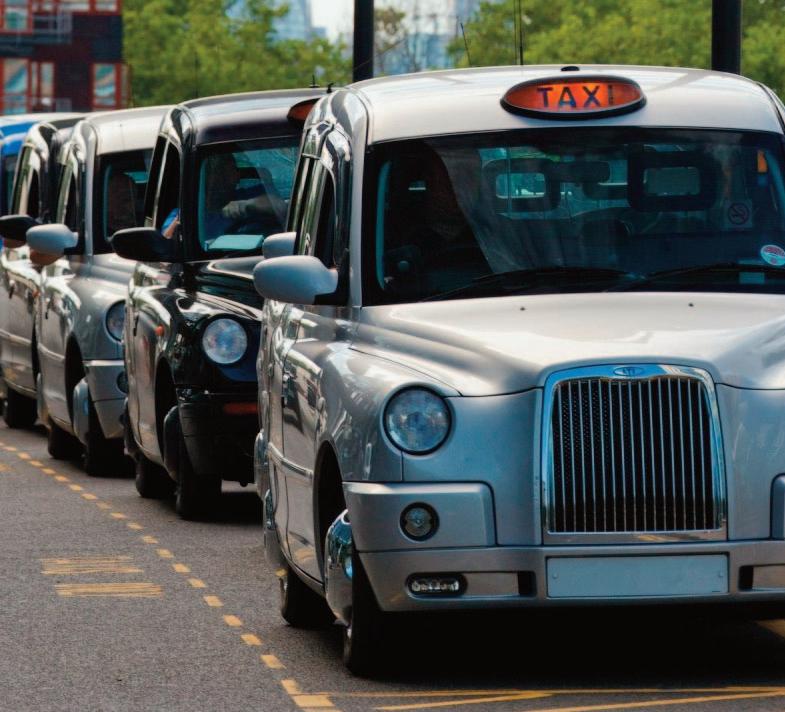
journeys. TfL could extend its current complaints handling service for the taxi industry to PHV journeys. This would enable consistent handling and ensure the complaints history of individual operators and drivers can be reviewed. However this would extend the scope of TfL’s regulation over the PHV industry beyond dealing with complaints that concern an individual’s fitness to hold a PHV driver’s licence.
Access to road network space
3.7 TfL currently provides PHVs with a 100 per cent discount for the Congestion Charge and allows PHVs to pick up and drop off passengers on the red route and use Automatic Teller Machines at night time.
3.8 The PHV trade is lobbying for parity with licensed taxis for access to bus lanes – as they do in some other parts of the country. They argue that the PHV trade is part of London’s wider transport network and should be treated consistently with taxis and other public
London’s traffic flow.
Environmental improvement
3.10 PHVs are a significant generator of transport emissions accounting for around 3-4 per cent of all transport emissions of CO2, particulate matter and nitrogen oxide. Progress in reducing London’s transport emissions has been achieved through minimum emissions standards for HGVs, buses, coaches and taxis. TfL could establish minimum standards, or incentives, for reduced emissions from PHV vehicles or encourage alternative low emission technologies. Clearly, this could impose an additional cost on parts of the PHV industry and would need to be undertaken in an appropriate timescale.
Touting
3.11 Touting poses a serious risk to the safety of the travelling public. Until recently, TfL and the Metropolitan Police Service (MPS) focused on tackling unlicensed touts and sexual predators using touting
3.12 There is a significant problem of otherwise licensed PHVs touting for work –especially in the West End and the general vicinity of night clubs. TfL has implemented ‘one strike and you’re out’ policy by which any licensed PHV driver convicted of touting loses their licence for at least a year. More steps are being taken to tackle flouting of PHV licensing provisions at key venues.
4 STRATEGIC OPTIONS
4.1 The PCO is responsible for regulating London’s PHV services to ensure that they comply with the PHV legislation. Generally, this means that TfL takes a “light touch” approach to licensing and regulating PHV services. Existing measures and interventions are primarily targeted at ensuring the safety of the travelling public by ensuring six monthly checks on vehicles, CRB checks on drivers and maintenance of booking records for all journeys.
4.2 TfL is already committed to the modernisation of taxi and PHV licensing systems during 2009/10. This will improve the quality of service to holders of licenses and the efficiency of the operation. TfL is also
4.4 TfL could focus on ensuring that basic licensing standards are in place and are being adhered to. The PHV industry would be left to develop the industry and TfL would not interfere with the PHV operator – customer relationship. This option would include:
(a) No change to existing vehicle, operator and driver standards;
(b) Maintaining current compliance activities on vehicles and operators;
(c) Allow the PHV trade to develop new services such as “one phone number” systems compliant with the PHV Act; and
(d) Rationalisation of vehicle signage to ensure basic PHV licence identification.
Option 2: encouraging the PHV industry to raise standards
4.5 TfL could gradually introduce higher minimum standards and encourage the PHV industry to improve customer service. This could mean some higher costs for the PHV industry to meet higher standards and contribute to customer service improvements. This option could include:
(a) Improve public information and access to licensed PHV services;
(b) Establish a customer charter enabling passengers to commend or complain to the PCO about service quality which would be followed up with PHV operators;
(c) Target compliance activity at raising standards of PHV industry and dealing with those operating outside the licensing regime;
(d) Review vehicle signage requirements to balance commercial interests with requirement for some recognition of PHV status;
(e) Facilitate the introduction of a one number call system for PHV services;
(f) Facilitate automatic driver licence checking; and
(g) Introduce minimum vehicle age or emissions standards for PHVs overtime.
Option 3: significant raising of PHV standards coupled with targeted investment 4.6 TfL could pursue a more direct strategy of raising the standard of PHV services. This Continues overleaf
Issue 293 March 2024 11
could extend to taking a more regulatory approach to aspects of the PHV industry such as vehicle design, accessibility standards, customer service provision and the level of enforcement activity. Under this scenario, the overall cost of the regulatory regime option could include:
(a) Introduce more stringent driver checks and requirements;
(b) Automatic driver licence checking through out the life of the licence;
(c) Require vehicles to meet certain design standards (eg accessibility);
(d) Require vehicles to meet minimum emissions standards;
(e) Requirement for all operators to use recordkeeping systems which interface with PCO systems;
(f) Establish a single panLondon “one number” service; and
(g) Introduce consistent payment technology to all PHVs.
Incentivising the industry
4.7 Under any of the options above, TfL is keen to provide more effective incentives to the PHV industry to raise standards and improve customer service. One consideration is to establish a PHV operator recognition scheme which would incentivise PHV operators to improve their standards.
Simply put, the higher the standard of performance (for example in terms of customer service, access to booking, accessible vehicles and vehicle emissions) the more benefits an operator could receive from TfL.
This could be developed into a scheme along the lines of the current Freight Operator Recognition Scheme whereby operators can reach Bronze, Silver or Gold standards. TfL could encourage operators to reach progressively higher levels of performance through incentives such as:
(a) Road space privileges;
(b) Working with borough partners to identify areas for PHV waiting;
(c) Facilitating operator driver check services;
(d) Preferential public listings according to operator status; and
(e) Variable vehicle identification.
4.8 There is no provision in TfL’s budget and plan to devote any significant project management or financial resources to these proposals. Any costs incurred would need to be met where possible, by an appropriate increase in PHV licence fees or by less spend in other TfL activities.
5 CRIME AND DISORDER IMPLICATIONS
5.1 The proposed strategic options look to reduce illegal activity around the private hire trade. They will also help ensure that there is better information sharing between the licensing authority, PHV trade and the police.
6 EQUALITY AND INCLUSION IMPLICATIONS
6.1 It is important that the strategy looks to ensure that the future of PHV services does not negatively impact on the accessibility of the service and looks to improve the service for those people who rely on PHVs as their primary form of transport.
7 CONCLUSION AND NEXT STEPS
7.1 TfL’s primary role is to maintain and improve standards of public safety through regulation. There is scope for further encouraging the PHV industry to raise customer service standards and address issues such as vehicle emissions and compliance with regulations. A detailed examination of individual proposals against what the PHV Act will allow will take place in due course.
8 RECOMMENDATION
8.1 The Panel is asked to DISCUSS this report and PROVIDE GUIDANCE on the development of TfL’s policy in this area.
Jeroen Weimar, the Chief Operating Officer responsible for Enforcement and Compliance in Surface Transport, proposed significant regulatory changes. However, these proposals were not pursued further and were ultimately shelved by John Mason and Helen Chapman. The existing regulations create an unfair playing field, resulting in the London taxi service struggling to compete with private hire (PH) services. This disparity is evident in the case of "taxi radio circuits," which originally provided services similar to current PH offerings, such as vehicles pre-booked via telephone or online platforms. Allowing licensed PH operators to directly compete with taxi circuits has decimated the taxi industry, leading to a substantial decline in revenue and profitability. The regulator's actions, whether intentional or inadvertent, are undermining the London taxi service. Despite being self-financing and providing a gold standard service at no cost to the public purse, the taxi industry is facing extinction due to regulatory interference. Skewed costs and trading conditions have
drastically reduced demand for pre-booked taxi services, while PH operators have seen significant growth. This imbalance is not driven by consumer preference but rather by regulatory intervention.
The market is now divided, with PH dominating the pre-booked segment and encroaching into the on-demand market traditionally served by taxis, facilitated by PH apps. If the regulator continues to impose uneven cost burdens while allowing PH to penetrate the taxi market, the latter's share of the on-demand market will further diminish. This situation is not the result of free market dynamics but of regulatory conditions that favor PH over taxis.
It is possible that those overseeing regulation lack a comprehensive understanding of its implications, given their background in managing subsidized public transport services. While it is unlikely that the regulator intends to destroy the taxi service deliberately, their actions indicate a lack of comprehension of competitive market dynamics. To reverse the decline of the taxi service, the regulator must either protect it from unfair market conditions or equalise costs between taxis and PH services. This requires raising public awareness of the differing standards and ensuring robust enforcement of regulations. Alternatively, privatising and outsourcing enforcement duties could be considered.
In a letter to former Mayor Boris Johnson in 2016, Grant Davis, Chair of the Licensed Taxi Drivers' Association, emphasised the importance of protecting the taxi market to preserve its unique wheelchairaccessible fleet. Failure to do so could lead to the erosion of this vital service and the eventual decline of the London taxi industry.
The Jacobs Report of 2014 delivered a sobering message to Transport for London (TFL) regarding the potential impact of implementing the Ultra Low Emission Zone (ULEZ). It highlighted that taxi drivers with older vehicles faced limited options: either invest in new vehicles, which could be financially burdensome, or exit the market altogether. Given the significant cost of new zeroemission vehicles, estimated at £40,000 in the report but in reality closer to £70,000 and potentially £100,000 with financing, there was a risk of many drivers and vehicles leaving the market, particularly considering the age demographics of taxi drivers. Moreover, the report noted that
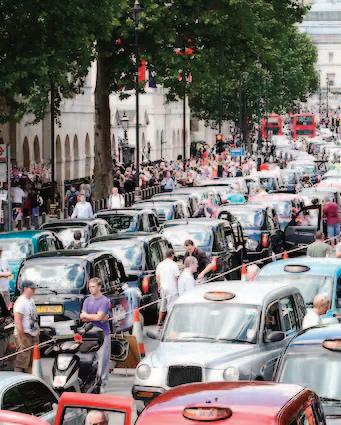
the rise of mobile apps for prebooking private hire vehicles (PHVs) could further exacerbate pressure on taxis, particularly in suburban areas where competition from PHVs is higher. This prediction, made a decade ago, raises concerns about the potential decline in taxi availability, especially in areas where earnings are lower and competition is fiercer.
Considering the high cost of providing Dial-a-Ride services and the dissatisfaction among disabled passengers with private hire options, the question arises: can London afford to lose its iconic taxi service and the wheelchairaccessible fleet it provides? This question gains urgency in light of the challenges highlighted in the Jacobs Report and underscores the importance of finding solutions to ensure the continued viability of the London taxi industry. The GLA Transport Committee proposed that 25% of the Private Hire fleet should be wheelchair accessible, amounting to approximately 25,000 vehicles requiring conversion. However, currently, less than 1% of the fleet is fully accessible.
Rickshaws
Regarding rickshaws, there are compelling reasons why they should not be permitted to operate in London, and few, if any, reasons supporting their allowance. Despite a common perception of rickshaws being
environmentally friendly due to their pedal-powered nature, this belief is misguided. Many rickshaws incorporate batteries for essential and decorative lighting, and some are unlawfully equipped with batteries to assist in propulsion, effectively transforming them into motor vehicles. While pedal-powered rickshaws themselves may not emit pollutants directly, their slow pace impedes traffic flow, leading to increased emissions from other vehicles.
Rickshaws also pose significant safety hazards.
Attempts to assess their safety have been hindered by their inability to be tested at speeds exceeding 5mph due to safety concerns. Additionally, rickshaw operators often disregard traffic laws and regulations, engaging in reckless behaviours such as traveling side by side on roads, mounting pavements, and ignoring traffic signals.
Instances of road races and intoxicated passengers hanging from rickshaws further underscore safety risks.
Moreover, the use of rickshaws perpetuates an outdated and degrading practice reminiscent of less developed countries. In modern societies, utilising human energy to transport individuals in a manner akin to a beast of burden is unacceptable and incompatible with enlightened values.
Currently operating outside the
12 Issue 293 March 2024
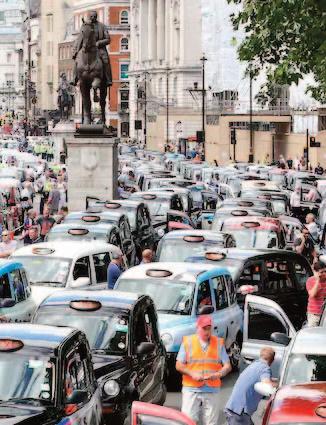
bounds of the law, rickshaws function as de facto taxi services. Therefore, they should either be licensed as taxis, subject to rigorous safety and regulatory standards, or banned altogether to uphold consistency and ensure public safety.
Cab sharing Khan’s interview
In an interview with BBC's Norman Smith on the 'Victoria Derbyshire Show' before his initial election as Mayor, Sadiq Khan, then the MP for Tooting, discussed various current affairs, including the mayoral election in London. When asked if he identified more with Uber or Black Cabs, Khan responded, "I'm both Uber and a Black Cab man."
Smith inquired about Khan's stance on measures to regulate Uber, such as implementing a five-minute wait time. Khan expressed skepticism about this specific proposal, emphasising the importance of levelling the playing field between traditional Black Cab drivers and Uber drivers. He highlighted the rigorous standards Black Cab drivers must meet, including expensive vehicles, disability accessibility, criminal background checks, and extensive knowledge requirements. Khan advocated for raising the standards for private hire vehicles, suggesting basic English proficiency, security checks,
are so expensive; they’re all disabled friendly; the criminal checks; the knowledge you gotta do…rather than levelling down your high standards, let’s level up the private high vehicle standards…so, for example, basic knowledge, speaking English, doing security checks…”
Norman Smith: ‘So how does that work - will they have English tests or something?’
Sadiq Khan: “Yes, we’ll need to do something…”
Norman Smith: “ What English tests for cab drivers?”
Sadiq Khan: “We’ll need to test…basic English should be requirement, if you’re a public servant.”
Norman Smith: ‘…and if they don’t get that, they wouldn’t be able to operate as a cab driver?’
Sadiq Khan: “They can’t. In my view, if you’re in any public facing job, you should be able to speak basic English!”
and knowledge tests as potential requirements. When asked about English proficiency tests for cab drivers, Khan affirmed the need for such assessments, stating that basic English should be a requirement for anyone in a public-facing role. He suggested that failure to meet these standards should disqualify individuals from operating as cab drivers, emphasising the importance of being able to communicate effectively in public service roles.
https://www.bbc.co.uk/program
mes/p03pyzjl
Norman Smith: ‘So what are you - an Uber Man or a Black Cab Man?’
Sadiq Khan: “I’m both Uber and a Black Cab man.”
Norman Smith: ‘Do you go along with some of the ideas to curb Uber, for example, for them to wait five minutes? I’m mean specifically with Uber, there’s a view amongst Black Cabbies they have an unfair advantage, so do you think, if you were Mayor, you would like to do something to curb the advantages that Uber have?’
Sadiq Khan: “I’m not sure if waiting for five minutes works. The important things to make sure we level the playing field. So, for example, just think about what you gotta go through as a Black Cab driver before you can drive a Black Cab. You know. The vehicle’s
During Mayor's Question Time on December 21, 2023, Caroline Pidgeon queried Sadiq Khan about the future of black taxis in London. Khan acknowledged the rich history and continued significance of the taxi trade in the city, emphasising their iconic status and innovative adoption of zero-emission technology. He highlighted ongoing efforts to support the trade, such as funding for zero-emission vehicles, access to bus lanes, exemption from congestion charges and Ultra Low Emission Zone (ULEZ), and the expansion of taxi ranks.
Khan also addressed concerns about the affordability of new taxis, acknowledging the high costs and limited market competition. He expressed a commitment to exploring ways to reduce costs in collaboration with industry representatives and manufacturers.
Pidgeon raised the issue of the plug-in vehicle grant's impending expiration and advocated for a new detailed action plan to address current challenges facing the taxi trade.
Khan affirmed the development of a new vision and action plan, drawing on lessons from other global cities and the increase in Black, Asian, and minority ethnic (BAME) drivers entering the industry.
In response to Pidgeon's suggestion of hosting a roundtable with industry stakeholders to shape the new strategy, Khan expressed openness to such engagement, emphasising the need to address the challenges of an aging driver population and ensure the sustainability of the taxi trade for the future.
The London Cab Drivers Club (LCDC) believes that the London taxi service's viability
within the public transport system is at risk due to technological innovations favouring private hire (PH) services. Despite efforts from the GLA Transport Committee and Mayoral Action Plans, the taxi service struggles to compete due to skewed regulations and increased competition. Contrary to the belief that taxi and PH services operate in a free market, they operate in a regulated market. The current regulatory framework heavily favours PH services, leading to over-supply and congestion issues. To address these challenges, the LCDC proposes changes in six key areas: plying for hire, cross-border hiring, closer regulation of services, knowledge of London, better enforcement and compliance, and regular impact assessments. These actions aim to level the playing field, improve passenger safety, and ensure the long-term sustainability of the taxi service.
1. Plying for Hire:
The Mayor, TFL, and the Transport Committee are actively advocating for a clear definition of "plying for hire" from the central government. Additionally, they are addressing other legal aspects such as limiting the number of private hire (PH) drivers. It's crucial to keep the taxi trade informed of any progress as time is of the essence for its survival.
2. Fair Fare Calculation:
The London Cab Drivers Club (LCDC) suggests interim changes to address immediate needs, particularly regarding the rise of ride-hailing services. They advocate for accurate fare estimates and the prohibition of surge pricing, which can confuse and disadvantage passengers. Additionally, they highlight the importance of ensuring accessibility for disabled passengers across all vehicle types.
3. Driver Standards and Vehicle Regulations:
The LCDC emphasises the need for higher standards among PH drivers, including advanced driving tests and better passenger pick-up and drop-off practices. They also stress the importance of vehicle accessibility for PHVs. Moreover, they call for closer regulation of both taxi and PH services to ensure fairness and safety for passengers.
4. Cross-Border Hiring: The LCDC urges authorities to address issues related to cross-border hiring, which can lead to regulatory loopholes and safety concerns. They advocate for stricter enforcement and compliance policies to prevent abuse of
licensing regulations by operators like Uber.
5. Improved Enforcement and Compliance:
The LCDC proposes measures to increase the value of a PH driver license, aiming to promote long-term commitment and selfregulation within the industry. They suggest enhancing training and qualification requirements to deter noncompliant behaviour and improve overall service quality.
6. Regular Impact Assessments:
The LCDC calls for regular impact assessments to evaluate the effects of changes in licensing conditions on both taxi and PH services. This proactive approach aims to anticipate and address any potential disruptions or challenges within the transportation sector.
Safety, Equality, and Regulatory Understanding (SERU) Requirement:
In January 2024, Mayor Sadiq Khan revealed that Transport for London (TFL) would temporarily halt the enforcement of the Safety, Equality, and Regulatory Understanding Requirement (SERU) for Private Hire Drivers. This decision marks the latest backtrack from his Taxi & Private Hire Plan, introduced in 2016, which has proven unsuccessful.
The SERU requirement, implemented on October 1, 2021, affects both new applicants and those seeking to renew their Private Hire Vehicle (PHV) driver licenses. It encompasses:
a) Drivers' responsibilities under the PHV (London) Act 1998, including associated regulations and obligations under the Equality Act 2010;
b) Policies and guidance issued by Transport for London (TfL) or other relevant entities for London PHV drivers;
c) Addressing the specific needs of passengers with protected characteristics under the Equality Act 2010;
d) Safeguarding children and vulnerable adults from harm and abuse;
e) Ensuring passenger and driver safety;
f) Promoting road and vehicle safety.
Driving Tests:
In 2016, Deputy Mayor for Transport Valerie Shawcross announced plans for all Private Hire Drivers to undergo an additional driving test by 2017. However, this initiative never materialised. Instead, TFL suspended testing for all drivers—both Private Hire and Taxi. This move casts doubt on the effectiveness of Vision Zero, appearing more like a case of Zero Vision.
13
Issue 293 March 2024

TAXI PHV LETTER TO MAYOR OF LONDON
Dear Sadiq,
I am writing to share the findings of the Transport Committee’s investigation into the Taxi and Private Hire Vehicle (PHV) industry in London.
The Committee held a meeting in January 20241, which focused on TfL’s plans for taxis and PHVs in London, in the context of your intention to create a new Taxi and Private Hire Action Plan for this industry, as announced on 21 December 2023, as well as current issues that the sector faces.
The meeting included the following guests:
Helen Chapman, Director of Licensing and Regulation, TfL Christina Calderato, Director of Transport Strategy and Policy, TfL Steve McNamara, General Secretary, Licensed Taxi Drivers Association (LTDA)
Mariusz Zabrocki, General Manager UK, FREENOW Steve Wright MBE, Chair, Licensed Private Hire Car Association (LPHCA) Asher Moses, Founder and CEO, Sherbet - The Electric Taxi Company
The Committee also received written submissions from a number of organisations, which are being published with this letter where appropriate.
This letter covers the following areas:
1) Plans for developing the new Taxi and Private Hire Action Plan
3) Supporting more people to complete the Knowledge, particularly women
New Taxi and Private Hire Action Plan
2) The high cost of taxi vehicles, and continuing need for further support
4) Licensing and enforcement issues affecting drivers
The Committee agrees that there is a need for a new Taxi and Private Hire Vehicle Plan as the current Taxi and Private Hire Vehicle Action Plan was last updated in 2016.3 The taxi and private hire industries have changed significantly in the past decade, with significant growth in numbers of private hire vehicles, and a decline in black taxis. In 2023, there were 89,600 PHVs licensed in London, up from 49,900 in 2013. In comparison, the number of black taxis in London has fallen from 22,200 in 2013 to 15,100 in 2023.
Steve McNamara from LTDA told the Committee that policies to prevent older, more polluting taxis being driven had contributed to the reduction in numbers:
“The last Taxi Strategy we had was in 2016 and then historically, very shortly after that, we started talking about how we can decimate the fleet even further than we had already done by reducing the age limit on vehicles yet again. I estimate that we lost about £35 million through the lost residuals in second-hand vehicles that were wiped off when the age limit was reduced from 15 years to 12 years.”
In our meeting, TfL told the Committee that the new Taxi and Private Hire Action Plan will look at both taxi and PHV industries at the same time.6 Guests at our meeting made several suggestions on areas that need to be part the strategy, including:
The age limit of vehicles,
The fact that there is only one current Zero Emissions Capable (ZEC) vehicle available that meets the approved specifications, Ways to make the taxi more affordable, including the continuation of the Plug-in Taxi Grant (PiTG), and
Whether the accessibility features of the black taxi should make it eligible for additional exemptions, such as the use of all bus lanes, or being VAT-exempt.
TfL acknowledged there are certain things in the Mayor and TfL’s Taxi and Private Action Plan that are out of date or need to be refreshed, including taxi fares and regulating pedicabs once legislation is passed. The Committee support the plans going through Parliament to regulate Pedicabs, and considers that zero emission forms of transport, including forms of cargo bikes that transport passengers, should be incorporated within the scope a new wider strategy. There are several legislative issues which we heard about in our meeting, which require consideration as part of the vision and action plan process. These include: cross-border hiring, pedicab legislation to set licensing conditions, and the potential to license taxi apps.
Recommendation 1: TfL should set out an engagement plan for developing the updated Taxi and Private Hire Vision. This should be a participatory process, including engaging with Assembly Members and the London Assembly Transport Committee. Recommendation 2: The Mayor and TfL should consult around including Pedicabs, and other forms of transport, in the new Taxi PHV strategy. Recommendation 3: The Mayor should work with Government on any legislative changes required to achieve the vision. This could include re-visiting discussions around capping PHV numbers and cross-border hiring, the content of pedicab legislation, and the potential to license taxi apps.
Affordability of taxi vehicles
The Committee heard about how the high price of the only model of ZEC taxi currently available is contributing to the sharp decline in the number of taxi drivers. The Committee heard from Mariusz Zabrocki, General Manager of FREENOW, who told the Committee that:
“We have pretty much one vehicle that is the only choice the drivers have. In terms of rental, that is £400 a week, equivalent to £20,000 a year, this is an awfully high cost, and that is because there is no competition. We need more vehicle models available. Maybe we need to look at some of the requirements such as the turning circle, to make sure we have more models, because executive class vehicles for PHV, they cost around £230 a week. That shows you how crazy is this price.”
The Committee also heard from Steve McNamara, representing the Licensed Taxi Drivers Association (LTDA), who told the Committee that there is a “major problem insofar as we have one vehicle we can buy and one vehicle only.”Asher Moses from Sherbet - The Electric Taxi Company told the Committee that as well as affordability, there are also issues with reliability and access to parts:
“I am the largest electric taxi fleet and I cannot afford to buy them any longer. I am seriously considering, among my colleagues, whether we should continue to invest in a vehicle that is over £100,000, that cab drivers cannot afford to rent, let alone buy. These vehicles are great vehicles, but we cannot get parts, the prices to maintain these vehicles are expensive, and we cannot continue to increase rents on these particular vehicles.”
However, Steve McNamara said that although “the reality is the vehicle is expensive”, it is also “the best vehicle that we have ever had by far.” He noted that it was difficult to create more competition in the market and attract new manufacturers as there was only limited demand for the vehicles. He said that “for the vast majority of time there has only ever been one vehicle and it has only ever been a monopoly. There have been periods when there have been other vehicles come and other vehicles go and the reason that they come and then they go is they tend not to be very good.”
The Committee heard how important the government’s Plug in Taxi Grant (PiTG) is in supporting the purchase of vehicles. The Committee therefore support the Government’s extension of the PiTG until April 2025, although the Committee has concerns that this has been reduced from £7,500 to £6,000 per vehicle.
There is a risk that with only a one-year extension there will be the same issues in April 2025. The Committee wants to see longer-term solutions considered, including removing VAT. Similar vehicles designed for disabled people are VAT-exempt. Steve McNamara told the Committee “The Treasury needs to reduce VAT on the vehicle and TfL, the Mayor and, indeed, the Assembly should be pushing for that above all else.” The Committee agrees that these accessible taxis should be VAT-exempt, and that all accessible vehicles including taxis and wheelchair accessible PHVs should be exempt.
Recommendation 4: The Mayor should look at what steps he can take to increase competition in the approved London taxi market. Recommendation 5: The Mayor should continue to liaise with the Government around support for the Plug-In Taxi Grant, and push for the Grant to be extended beyond April 2025. The Mayor should also continue to make the case to Government that all accessible vehicles, including taxis and wheelchair accessible PHVs, should be VAT-exempt.
Supporting more drivers to complete the Knowledge
There are fewer people applying to become taxi drivers as well as an ageing workforce. According to TaxiPoint, in 2018 and in years prior, there were an average of 2,000 candidates a year on the Knowledge (which is a series of tests required to be completed before a taxi licence can be obtained in order to become a taxi driver). As of December 2023 (the latest data available), there were 1,009 students studying for the Knowledge. 24 of these students were female, representing 2.38 per cent.
Mariusz Zabrocki, representing FREENOW, told the Committee the Knowledge is “extremely difficult, takes three to four years [to complete]” and as there is “no defined list of pick-up points that people need to memorise, it is a very difficult exam.” However, in November 2023, FREENOW launched an initiative to cover the cost of studying the Knowledge. He told the Committee that in two months they had “more than 600 drivers who completed the criteria to start the process and more than 200 drivers are already in Knowledge Schools”.
Steve McNamara told us “The Knowledge is very much fit for purpose.” He stated the Knowledge should be broken down into sections and be more modular, however he noted: “The only problem we have with the Knowledge at the moment, the demographics, the number of women is still very low, the number of women doing the Knowledge. We have tried to address that. We now run an all-women Knowledge School at our building in Southwark. Once a week we run an all-women Knowledge School. That is the only thing that really needs addressing and we have suggested to TfL various ways in which they could do that.”
TfL told the Committee that the number of people applying to do the Knowledge is increasing, although it remains “98 per cent male, two per cent female.” Asher Moses from Sherbet told the Committee that ten per cent of his fleet of 530 vehicles are female drivers. He added: “We tend to find that our female drivers, they tend to pick up pre-book fares, our customers ask for these particular drivers, they are a lot more approachable for what we call a ‘white glove’ service… Female cab drivers are very, very important for us.”
Recommendation 6: The Mayor and TfL should further explore making the Knowledge more modular, allowing people to complete the programme alongside their jobs. In response to this letter, the Mayor and TfL should set out what steps it is taking to encourage and support more women and people from a diverse range of backgrounds to enrol in the Knowledge
Licensing issues affecting drivers
The Committee heard that updates to TfL’s Taxi and PHV Driver Policy intended to improve safety had led to cases where taxi drivers were having their licences suspended in ways that appear disproportionate. Steve McNamara from the LTDA gave the example of a driver whose licence was suspended after receiving three points which had left him out of work. He told the Committee:
“You now get a ticket at 24 mph. I can literally give you multiple examples of drivers who have been caught at 24 mph, 24 mph, 24 mph and 24 mph, at all hours of the night, and have lost their licences. Now, I accept the simple argument that they should not have done it, but of course in the real world these people are not a danger to anyone. They are not driving recklessly.”
He expressed that the enforcement changes and camera fines for driving speeds only slightly above the limit have been “devasting” for taxi drivers, because of the potential subsequent consequences for their licence. He further stated that “Driving a taxi is now one of the most stressful occupations on the planet because of the sheer number of cameras, the plethora of unnecessary 20 mph limits, all of which are coming together to make cab driving the most stressful thing.” Guidelines originally set by the Association of Chief Police Officers (ACPO), now known as the National Police Chiefs’ Council (NPCC), make it clear that traffic enforcement should be guided by the principles of proportionality, targeting, consistency and transparency. For proportionality the aim is to relate enforcement to risks. It also makes it clear that changes should be: “part of a package with other measures to manage speeds which include engineering, visible interventions and landscaping standards that respect the needs of all road users and raise the driver’s awareness of their environment, together with education, driver information, training and publicity.”
Steve McNamara described the combination of licensing changes and camera enforcement of new 20mph limits as being “an absolute disaster for us, and it coincides with a reorganisation of their appeal process”. The Committee heard that if a driver gets their licence suspended or revoked, they undergo an appeals process with TfL. However, the Committee heard that the appeals process no longer includes an independent external assessment. The Committee also saw examples of disciplinary letters sent to drivers from TfL, which did not have a proportionate tone and in some cases would appear punitive. Steve McNamara described the letters as “absolutely outrageous”. He read out an example to the Committee, where the name of the taxi company was incorrect. TfL told the Committee they are reviewing the tone of their correspondence. The Committee supports the reform of the tone of these letters so that drivers can be engaged with the issues rather than alienated.
Recommendation 7: TfL should review its approach to how it deals with breaches of 20mph speed limits, to focus on behaviour change and achieve safe speeds and remove perceptions of unfairness. It should monitor the number of cases and trends over time and review awareness of 20mph limits and see if more can be done to reduce offending. TfL should write to the Committee with an update on this and how it has changed the tone of correspondence to drivers.
Recommendation 8: TfL should assess their new driver policy and reorganisation of the appeals process to ensure it is fair, independent and transparent.
I hope that you will take these recommendations on board to ensure the taxi and PHV industry is supported into the future
Yours,
Keith Prince AM, Chairman of the
Transport Committee
Issue 293 March 2024 23
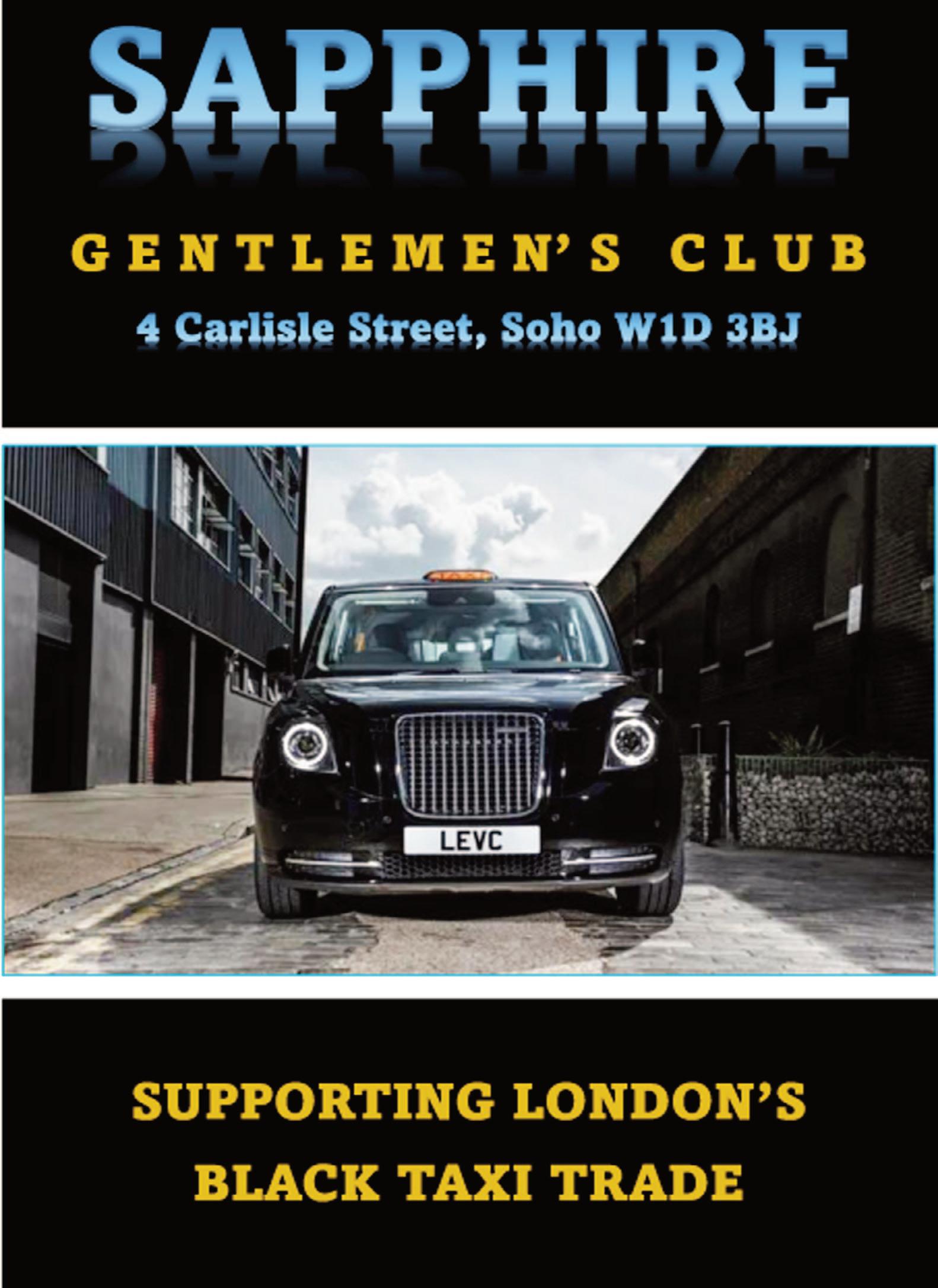

Meeting Minutes –
Wednesday 6th March 2024
Meeting title/subject: HAL
Taxi Trade Liaison Meeting
Meeting location / Time: Compass Centre & Teams
14:00 – 15:30
Summary of Discussion
Agenda was presented on Powerpoint.
Taxi Strategy
Timothy Wells, Heathrow Surface Access Strategy, presented slides detailing the Taxi and PH Strategy
• Decarbonisation – Short Term (2024-26): Install 100kw EV chargers and new queue management system for charging. Medium Term (2026 onwards): Monitor use of EV chargers and develop proposals for new if required
• Passenger Experience – Short Term (2024-26): Improve TFP performance including new taxi despatch system, investigate solutions to improve wayfinding for taxi ranks, review and improve online information for taxi options. Medium Term (2026-2028): Identify opportunities to improve facilities at TFP, and explore opportunities for T4 direct departures to taxi rank to reduce additional mileage
• Finalised strategy document awaiting sign off, will then be shared
• Megan and James will pick up separate points (how is PHV being reduced, enforcement in terminals, Taxi Touts and strategy, T3 taxi rank improvements) with Timothy
ORC
• Governance meeting 28th March 2024, please submit any topics in advance if possible to Ricky Dagdag
• New tariff will be implemented on 1st April
• Megan will seek update on the following topics: APCOA Q&A 12 days per year, taxi warden shift coverage, body cameras for TFP disputes
TDOC
• APCOA recommendation to change layout of T3 taxi rank – original proposal submitted by APCOA to Heathrow, APCOA now creating 3D walkthrough (making Tensa barrier layout more robust)
• PCNs are still being received – new Heathrow proposal? – Megan/James to check with Commercial
• TDOC camera is not APCOA’s responsibility – Megan/James to
